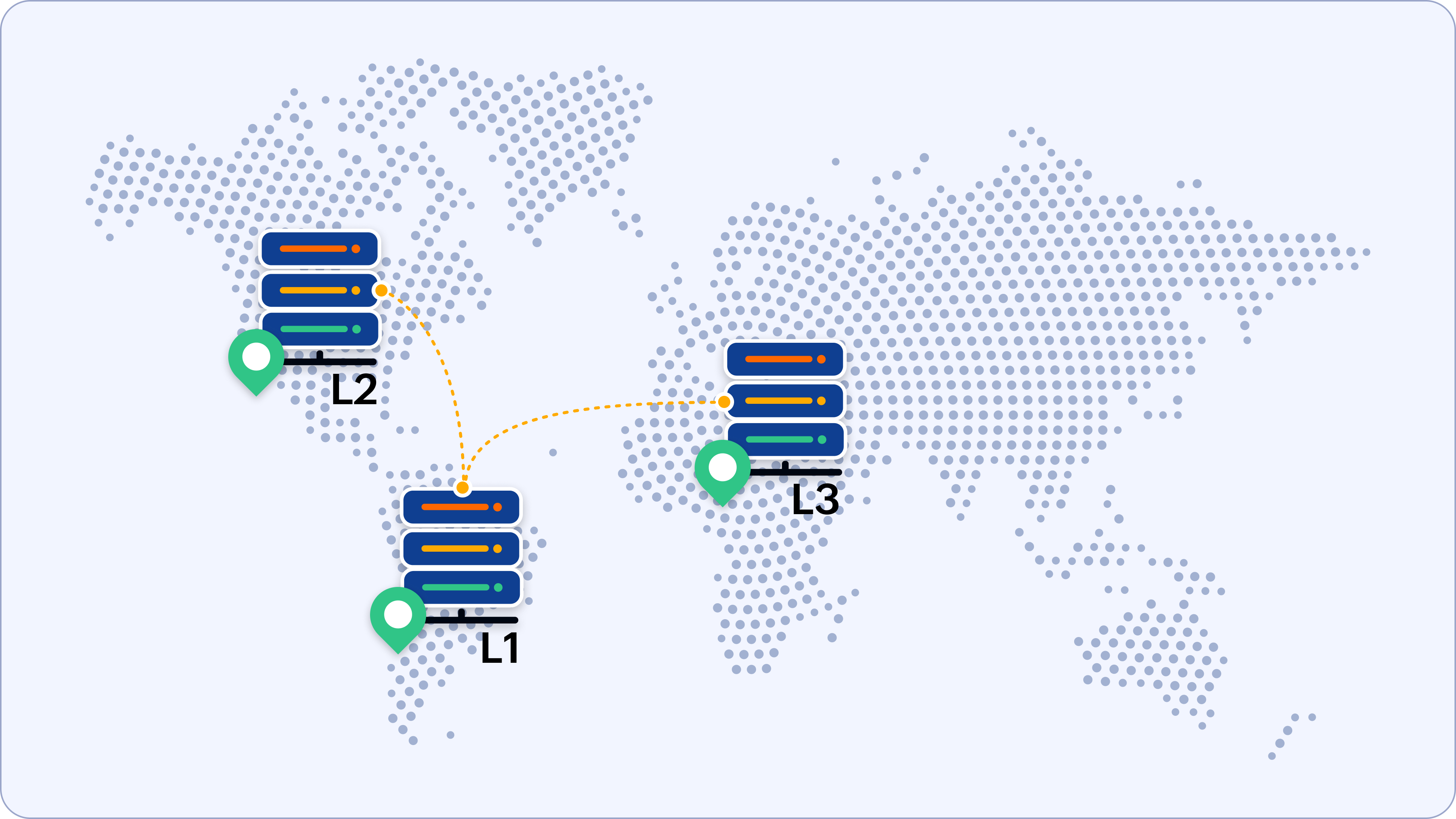
What is DNS monitoring?
DNS monitoring helps organizations monitor the status and availability of their DNS servers and records for seamless traffic distribution and troubleshooting issues. These integrated monitoring check ups ensures that the DNS service is consistent, efficient, and without downtime. Additionally, administrators can view DNS server stats and get immediate alerts over any failover issue.
ManageEngine CloudDNS provides four different types of DNS monitoring options:
TCP monitors
This analyzes TCP, which establishes connections and ensures the transfer of data between devices connected in the network. The TCP protocol needs to be monitored to track the data connection, flow of data, and transmission and identify issues.
WEBSITE monitors
This surveys the organization's website to check its availability, performance, and health to ensure it's working properly and that clients can visit it without any network delays or errors. A well-performing website is important for an organization's growth and efficiency, and it should be monitored to detect issues and resolve them to prevent downtime.
PING monitors
This determines the performance and status of the organization's network by checking the availability of the hosts and the devices connected within the network. The process involves sending an Internet Control Message Protocol (ICMP) request to those hosts and devices to check the reachability and time taken for responding to improve network service.
DNS monitors
This monitors the targeted DNS nameserver by sending requests automatically and checking the DNS responses for the given domain name. This confirms that the DNS translation is done properly, including having the right IP address provided to the appropriate domain name. Clients raising DNS requests to visit the organization's website should receive the right IP address as the DNS response. DNS should also deny any malicious domains and redirect clients to safer page.
Benefits of DNS monitoring
Ensure record accuracy
DNS monitors continuously analyze the organization's DNS record to ensure that no unauthorized alterations have been made, maintaining accurate DNS translation.
Minimize downtime
Consistent monitoring alerts administrators to network issues, enabling them to resolve downtime quickly and improve the organization's network service.
Analyze network performance
DNS monitors evaluate the response speed and time taken by DNS servers. They help to minimize delays in DNS responses, ensuring faster and more efficient services for clients.
Enhance network security
Monitoring DNS helps administrators identify malicious domain requests and take actions, like blocking and redirecting, to prevent unwanted domains from being translated.
Traffic routing
DNS monitoring helps distribute traffic into multiple servers by checking their availability and status. This ensures an even distribution of traffic so no server is overloaded.
Early troubleshooting
DNS monitoring alerts network administrators about issues early on, making it easy to troubleshoot and resolve them before they worsen. This early troubleshooting is crucial when it comes to dangerous DNS attacks like DNS cache poisoning and DNS spoofing.
How can CloudDNS's DNS monitoring help resolve network issues?
The DNS monitoring feature in CloudDNS supports the monitoring of A, AAAA, ALIAS, ANAME, CAA, CNAME, DS, MX, NS, PTR, SPF, SRV, TLSA, TXT, and SYSTEM NS records, ensuring proper DNS service for any organization.
CloudDNS can automate the rotation of primary servers with backup servers during a failover state. Typically, when a server fails, administrators must manually switch the service to the backup servers. However, automating this process helps to minimize errors and provide crucial support to IT administrators during critical times.
FAQs
1. How does DNS monitoring enhance security?
DNS monitoring enhances security by detecting and alerting administrators to suspicious activities, such as unusual query patterns, potential DNS attacks, and website poor performance, as well as the overall status of servers and devices connected. It facilitates a prompt response to threats and issues.
2. What are the benefits of real-time DNS monitoring?
Real-time DNS monitoring provides immediate visibility into DNS performance and security issues for administrators, allowing for quick issue resolution, minimizing downtime, improving network reliability, and enhancing the organization's overall security posture.
3. Can DNS monitoring improve overall network performance?
Yes, DNS monitoring can improve network performance by identifying and resolving DNS-related issues that may cause delays or failures in resolving domain names. By ensuring DNS servers are functioning optimally, DNS monitoring contributes to faster and more reliable network performance.
4. How does DNS monitoring help in troubleshooting network issues?
DNS monitoring helps in troubleshooting network issues by providing detailed insights into DNS query and response times, server performance, and error rates. This information can help identify the root cause of network problems, such as slow DNS resolution or DNS server outages.
